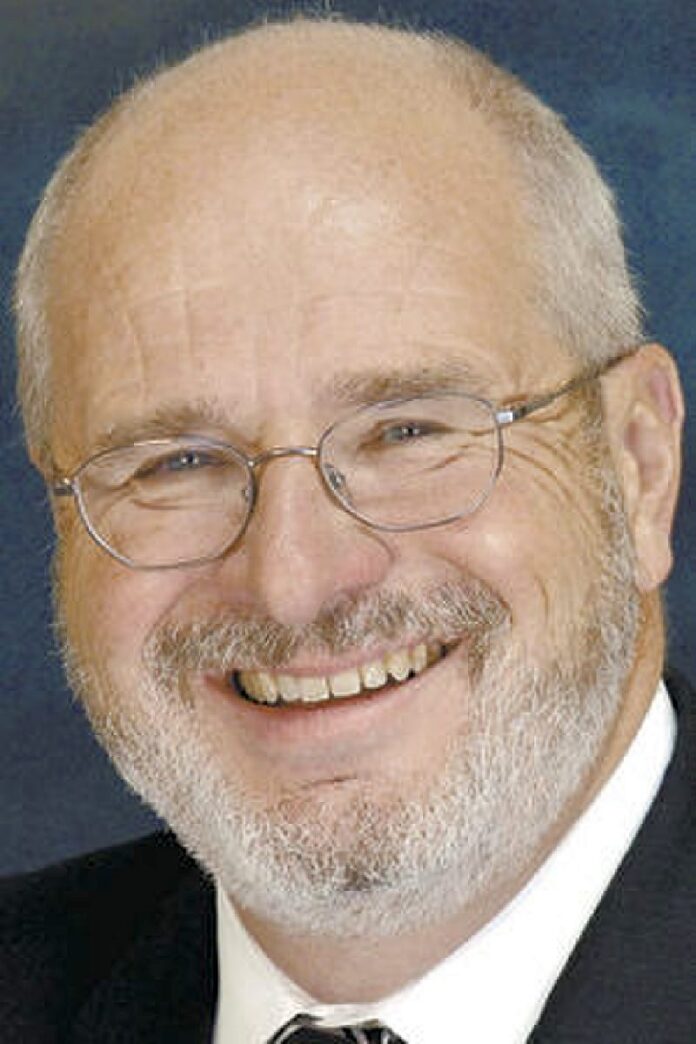INDIANAPOLIS – Jamie Merisotis says there are some things we all need to rethink.
Like learning.
Work.
Life itself.
Merisotis is the president and chief executive officer of the Indianapolis-based Lumina Foundation, which is committed to making opportunities for learning beyond high school available to everyone. He’s also the author of a just-released book, “Human Work in the Age of Smart Machines.”
The book’s thesis is a provocative and persuasive argument that we need to reshape how we think of school and labor – and, therefore, notions of what we consider successful lives. He makes his points in an old-fashioned way – by telling stories about real people, several of them Hoosiers.
His contention in “Human Work” is simple. He says that, as technology develops in ways that allow it to perform many of the repetitive tasks human beings once did, humans must shift their focus to doing the kinds of work that only they can do well.
These are the tasks that require human traits – empathy, problem-solving, critical thinking and creativity.
This means, among other things, that we must reinvent the way we humans educate ourselves. We need to focus more on collaboration, on developing judgment, on fostering relationships and on thinking beyond the next move.
It’s an ambitious notion, particularly in a nation such as ours, where our leaders often love to fight educational and economic battles from 30, 50, 70 and even 100 years ago rather than face the challenges of today.
That’s what I ask Merisotis about.
This being the age of the pandemic, we don’t talk in person, but online, videoconferencing on the day his book is published.
His answer to my question about where the political will might come from to change our thinking about such deeply entrenched systems of work and study is upbeat.
He acknowledges, “It’s a challenge.”
But then he argues that the disastrous events of 2020 – the pandemic and resulting economic slowdown, the racial unrest, etc. – force us to realize there are changes we must make if we are to thrive.
“There is a reckoning,” he says.
Part of what he hopes we will realize during this eventful and often tragic year is that “this system is not fair to everyone.”
Merisotis notes that he and I, for example, can do our work from home, where we’re both comfortable and safe. Many others cannot.
The goal is to extend the openings of opportunity to more and more people. That will lead to greater productivity, greater prosperity, more satisfaction and less unrest.
Merisotis says one of the keys to accomplishing this is “widening” learning. He balks at the term “lifelong learning” for reasons that make sense.
For people in the academic world, such as me, the term is attractive because it suggests opportunities for perpetual employment and usefulness. For consumers, though, it sounds like a command to run on a treadmill forever.
The trick, Merisotis argues, is redefining what we think of as school and what we think of as work. It’s less a matter of persuading people than encouraging systems of government and institutions of education and finance to catch up with them.
Most people, Merisotis says, want their work to be about more than a paycheck. They want it to mean something.
That’s good, he argues, because that’s the area in which the new jobs are going to be found. Many of the jobs lost in recent years won’t come back.
Can’t come back.
That’s because of a historic dynamic.
“In the race between technology and skills, technology always wins,” he says.
That is why many people trained for specific tasks or jobs found themselves without jobs or purpose within a few years. That trend isn’t going to change. It’s only going to accelerate.
That is why we must act – must respond to the moment.
We must begin building systems of education and reward that, in Merisotis’ words, create “a virtuous cycle of learning and earning and helping others.”
Doing work that only human beings can do.
Work that human beings must do.
Work that matters.
John Krull is director of Franklin College’s Pulliam School of Journalism and publisher of TheStatehouseFile.com, a news website powered by Franklin College journalism students.





